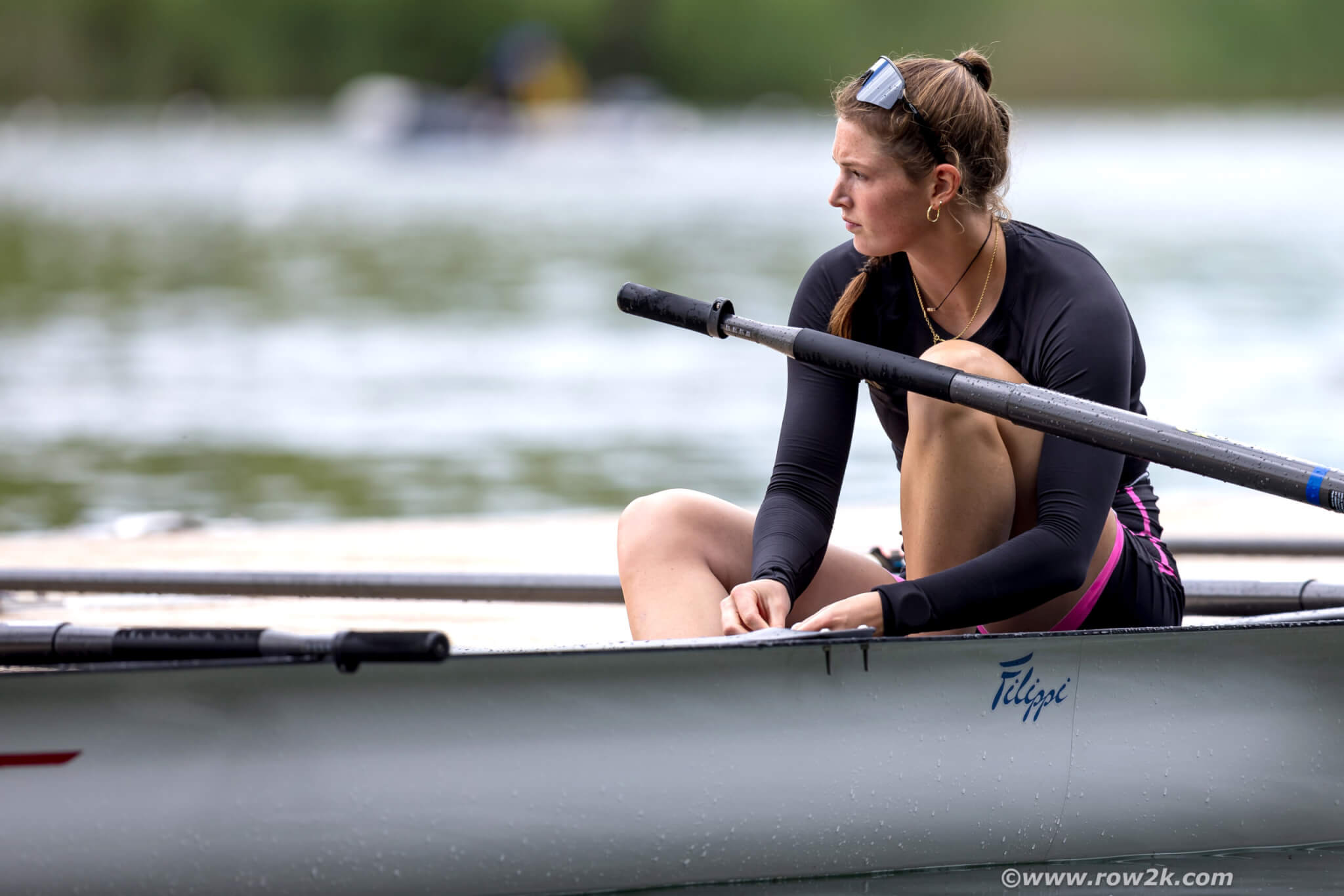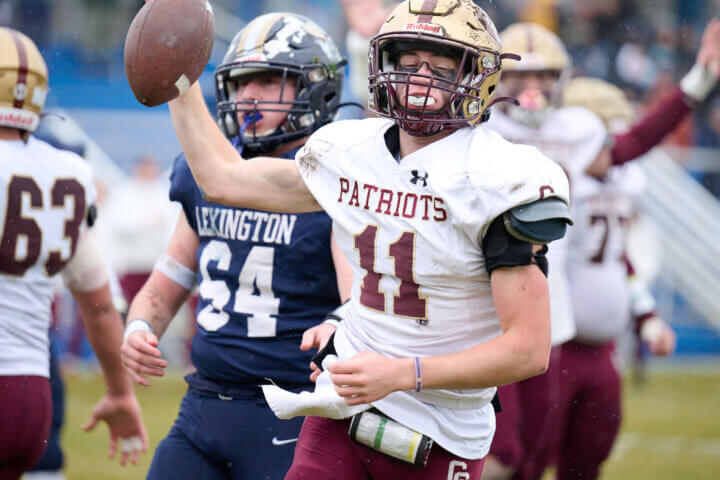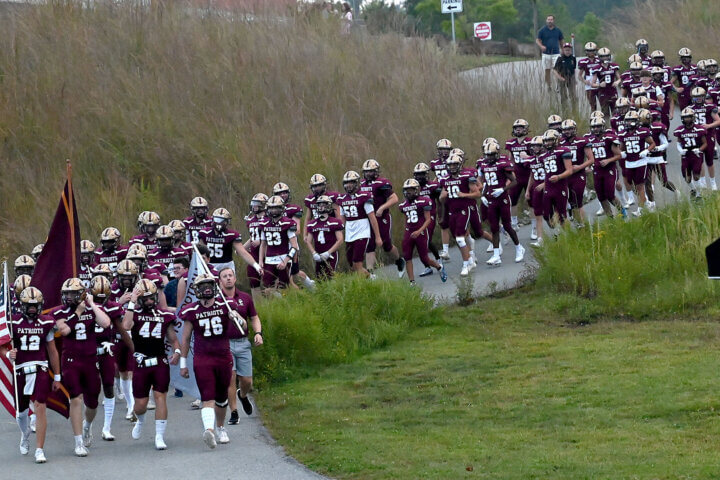By Dan Atkinson — Correspondent
The Olympics were founded in Greece, and this week, they begin in Paris — but the town of Concord has made its mark at the global games over the years.
In April, the Bridge profiled Margaret Hedeman, the Concord-Carlisle High School and recent Yale graduate who achieved her lifelong goal by earning a spot on the U.S. rowing team competing at this summer’s games.
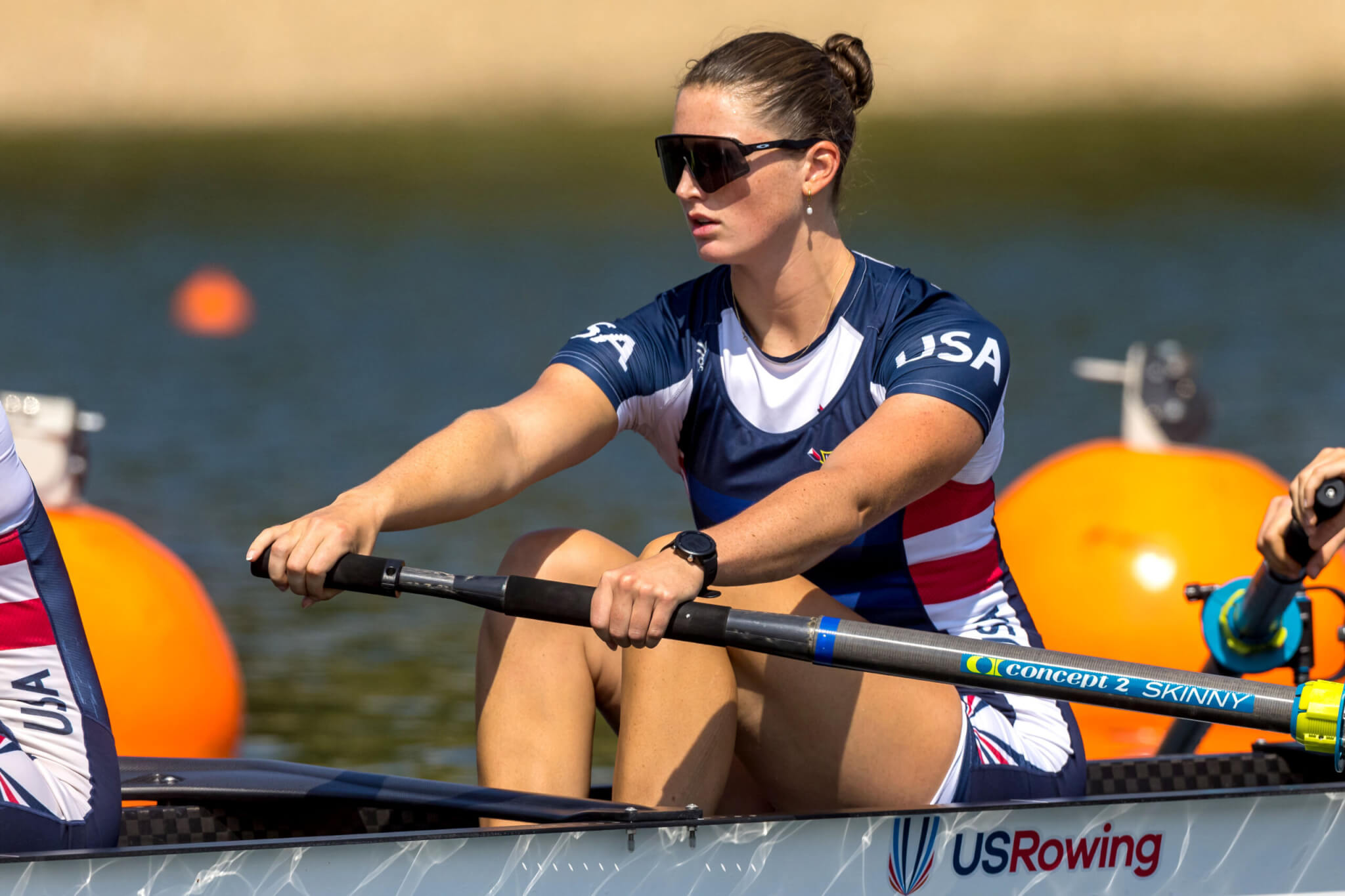
The Concord Bridge reached out to athletes who have competed at the games or are preparing to represent the U.S. at future games and talked with them about how the Olympics — and the town — have shaped their lives.
Here’s what some of Concord’s athletic greats have on their minds as the games begin.
Laurie Baker: Hockey
Growing up in Concord, Laurie Baker took figure skating lessons and watched her older brother play hockey before taking up the sport herself through the Assabet Valley Girls Hockey Program. The ice became her second home, the place where she’d rub elbows with role models and women’s hockey pioneers Kelly Dyer and Cindy Curley.
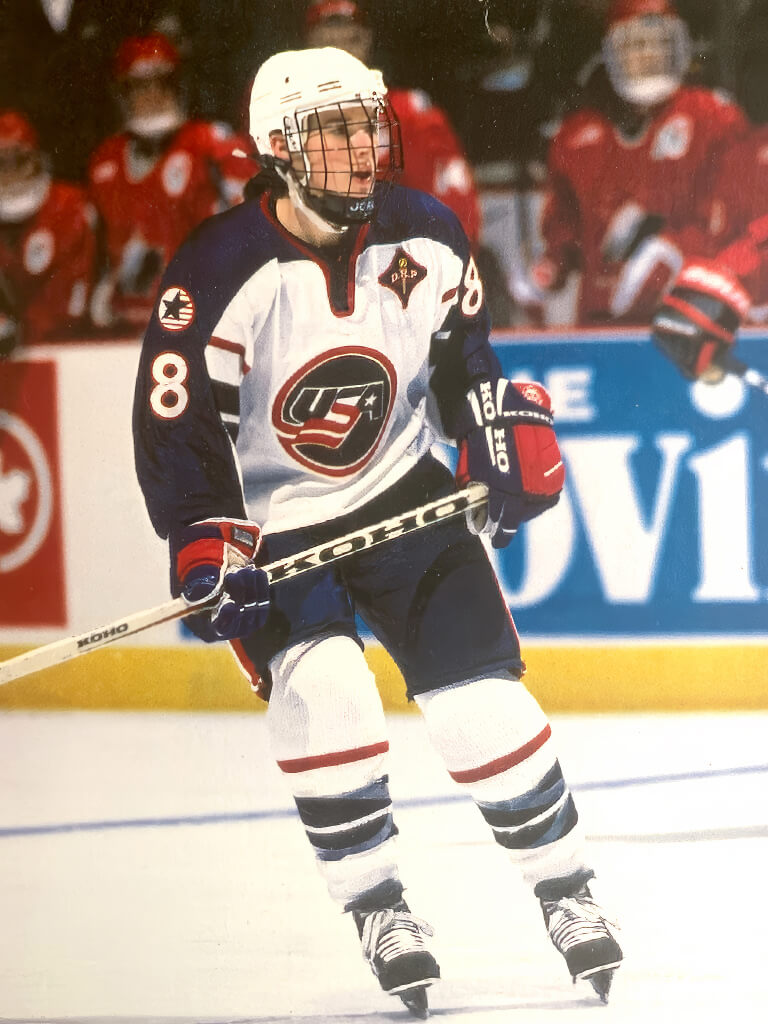
“I was definitely a rink rat,” Baker said. “My whole youth was basically in that rink. Just the [Assabet] program itself being so close and [my] having access to it was a huge positive.”
The Olympics weren’t on Baker’s radar in her youth because women’s hockey wasn’t part of the games. That changed in 1995 when the sport joined the lineup for the 1998 Nagano Olympics.
Baker had been going to USA Hockey camps with other young women, working her way through the ranks. The Olympics gave her new motivation.
“The reality that women’s hockey was in the Olympics pushed me to continue growing with the sport,” she said.
The Nagano Games were a “whirlwind,” and Baker met players from other countries and star U.S. athletes like Tara Lipinski and Michelle Kwan.
And she and her teammates made history themselves when they captured the gold medal.
Baker said that nothing tops winning a gold, but she added that it was equally exciting to experience the wave of support they received and to see the young girls who looked up to her team — just like she had to the talented women who didn’t have the chance to participate in the Olympics.
For the past 20 years, Baker’s been an assistant athletic director at Concord Academy. She’s run the Concord-Carlisle Learn To Skate program and helps out with her son’s ice hockey team.
Baker likes to stay involved in hockey and is part of a continuum of women’s hockey greatness. Back then, “We didn’t know [that] what we were doing would make our sport explode,” she said, adding that the team simply “wanted to be the first to win a gold medal.”
Kristin Hedstrom: Rowing
As a freshman at Concord-Carlisle High School, Kristin Hedstrom joined a small rowing class led by longtime coach Buzz Congram. Joining that after-school squad was the first step on the path that brought Hedstrom to the Olympics — and to her current career as a coach.
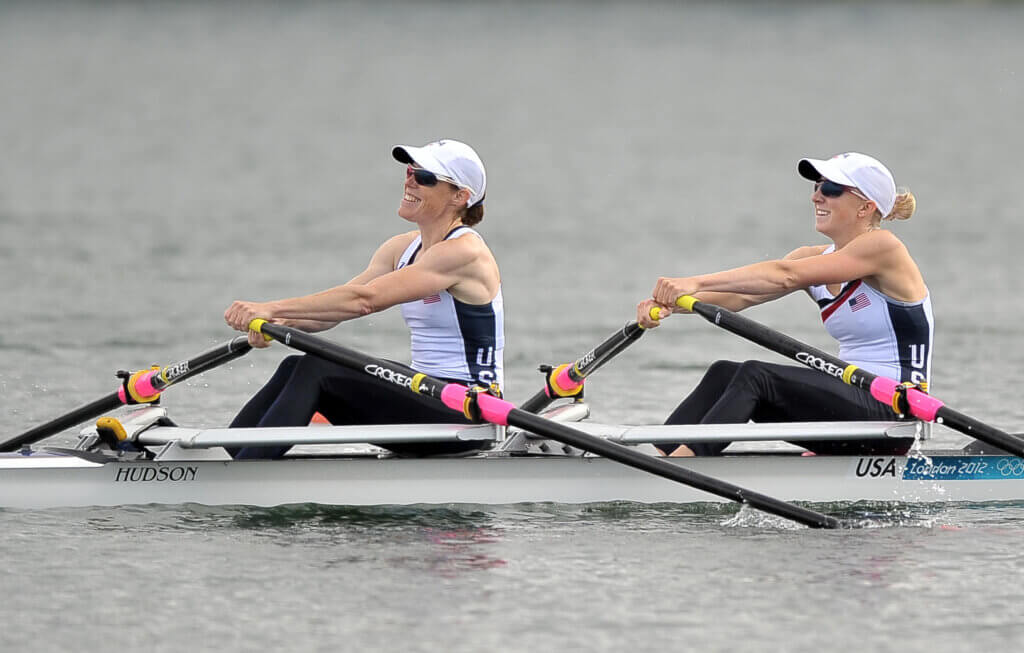
Her CCHS coach recommended Hedstrom join Community Rowing in Boston, which led to her medaling at Youth Nationals and then rowing at the University of Wisconsin, during which her team won two more national titles.
She moved to Team USA after college and continued to excel, winning the lightweight single scull race at the 2009 Head of the Charles. Eventually she rowed in the lightweight double sculls at the 2012 Olympic games in London.
That was a new experience not just in rowing, but in fashion, Hedstrom told the Bridge in an email.
The Olympics “are a completely unique experience,” she noted. “Before arriving at the Olympics, the athletes go through ‘processing,’ where each athlete receives four suitcases of Team USA gear from Nike and Ralph Lauren to be worn around the Olympic Village and competition venues,” she said.
“Each athlete’s bag is already filled with the correct sizes. Then you’re fitted for your Olympic ring and your Opening/Closing Ceremonies outfits. Each athlete’s outfit was custom-tailored during processing and delivered to the Village the following day.”
But of course, the rowing is what really stood out to her.
“Once we got to competition, sitting in her boat on the starting line of the Olympics stands out as one of the more pressure-filled moments of my life,” Kristin told the Bridge.
“Knowing the whole world was watching is daunting, especially in England, where rowing is one of their most-watched sports.”
Hedstrom raced all over the world in her 15-year career and said the difficulty of reaching the Olympic level provided her with life skills she’s carried since.
“Getting to the Olympics is an incredible challenge that pushed me to my mental, physical, and emotional limits,” Hedstrom said. “Pushing yourself to that level puts everything else in perspective; suddenly enormous feats seem achievable and ‘challenge’ is a relative term,” she added.
Hedstrom said she is “grateful that I know how to pursue big goals, work hard, and make adjustments if things aren’t going right. The teammates I got to work with along the way became some of my best friends. There is a special bond that’s built only through enduring a long, hard 6 a.m. workout in the freezing rain together.”
Now, as a mentor to younger rowers, Hedstrom tries to pass on those lessons. “It is incredibly rewarding to make a significant impact on high school rowers by giving them the strategies that I wish I knew at that age,” Kristin said.
Anne Marden: Rowing
Anne Marden wasn’t into rowing while growing up in Concord, but the area’s environment — physically and culturally — helped prepare her for an Olympic career.
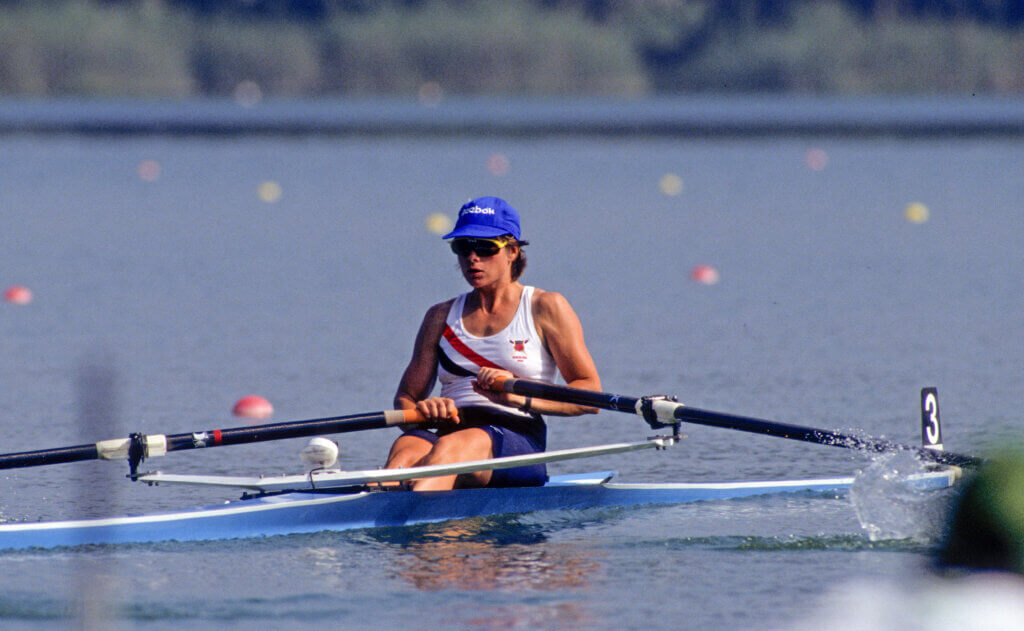
“Concord is vibrant at all ends of the spectrum; there are really fantastic athletes and scholars,” Marden said.
She remembers skiing and taking hikes while growing up: “Even though you’re not training, it’s climbing rocks and having all your muscles and tendons develop in a way that wouldn’t happen if you were just hanging out on a street corner. I developed balance from an early age because of that.”
Marden’s musician mother encouraged her and her siblings to take piano and violin lessons, which gave her a different kind of stability. “The rhythm of music is very powerful for me,” she said.
But she “never looked back” after starting to row at Phillips Exeter Academy and Princeton and to train on the Charles River in Boston. Often, that training had her working harder than some of the other rowers.
“I’d go to team practice, where all the women in Boston were training for the Olympics. If practice was a joke, I’d go home and do something else myself,” Marden said. “I’d want to go on a 20K row, not a 10K.”
Marden qualified for the 1980 Olympics but did not compete due to the U.S. boycott of the games. She won a silver medal in quad sculls in 1984 in Los Angeles, but she didn’t feel she was very competitive in the 1,000-meter race. Afterward, she went to France for business school.
But then the Olympics expanded their racing to 2,000 meters, a length she was more comfortable with, and she started to row single with a new coach. “That was when the real successful period began,” Marden said.
Marden earned a silver medal in the 1988 Olympics in Seoul and competed in the 1992 Barcelona Games, finishing fourth. During that time she dominated the Head of the Charles, winning the women’s singles every time she competed. The last Head of the Charles race held particular meaning after her showing in Barcelona, she said.
“All the world champions were there in 1993 and I dusted them all off,” she said.
Marden recalled anticipating the Olympics, going to the opening ceremonies, and being thrilled by the stadium lights in Los Angeles. But out on the water is where she found her deepest connection to the games.
Once she saw a rainbow over the course, and that, she said, “brought out the mystical feeling of being in the Olympics.”
Sydney Mullaney: Curling
Sydney Mullaney’s father constantly tuned the TV to the Olympics in the family’s Concord home. One morning in 2010, 9-year-old Sydney woke up early, looked at the television, and saw a curling competition.
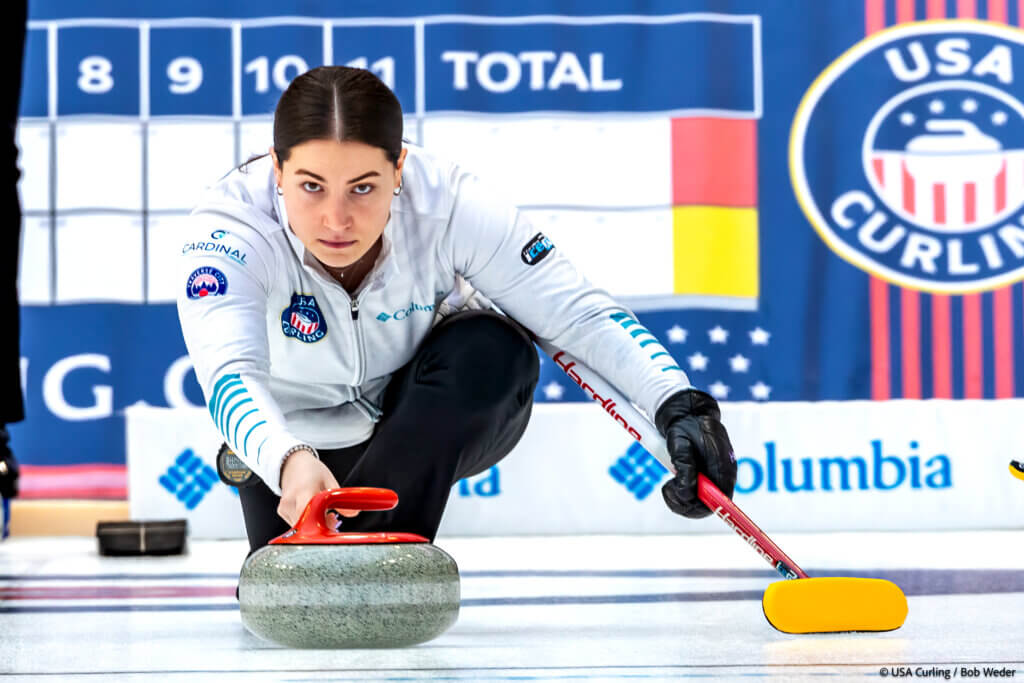
“I thought it was funny, so we went to the local curling club,” Mullaney said. “I could balance because I did gymnastics and was better than the others, so I liked it.”
Now, Mullaney is working toward the 2026 Winter Olympics in Italy. Her four-woman team qualified for the Covid-affected 2021 trials and placed fifth, but now her team is one of two women’s teams in USA Curling, which means they receive Olympic financial and coaching support as they prepare for the 2025 trials.
“Curling is unique; they don’t select individuals — you compete as a team, and the team goes. Of four teams at trials, one goes to the Olympics. It’s much more heightened dynamics,” Mullaney said.
“There’s a really big trend where European countries are putting a lot of money into curling and getting really good. The U.S. and Canada used to be really steady contenders, but the last quad [Olympic four-year playing period] or two, that’s no longer the case. [USA Curling] is trying to do the best they can to level up and keep up.”
As one of the younger competitors, Mullaney said she doesn’t feel the same pressure as older curlers who can remember the days of U.S. dominance. The pressure for her came in a different way.
“I felt hesitant to say the Olympics were my goal because it was obvious — who plays an Olympic sport and doesn’t want to go to the Olympics?” she says. “Ever since I was little, all people ask me is if I’m going to the Olympics. It’s such an odd point in time to ask.”
But the USA Curling program gave her the confidence and dedicated teammates that led her to commit to that goal.
“When I was suggested for the junior national team, we were really successful. That’s about when I realized I could actually be good,” she said. “I don’t know if I processed ‘Olympics’ until the last trial. I thought I had no business here but it would be good for the experience, and then I did good.”
Mullaney wants to keep curling for two more quads, but the Concord-Carlisle alum is also focused on her strategic communications work at Piper Sandler after graduating in 2023 from the University of Minnesota.
And there’s another factor at play.
“My boyfriend curls for Great Britain, [and] we joke that whoever quits first has to move across the ocean,” Mullaney said.


